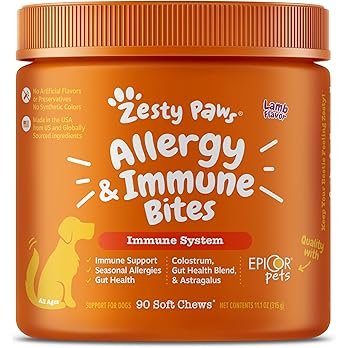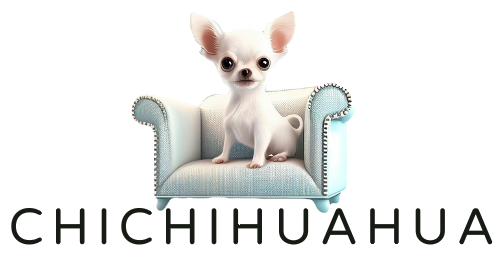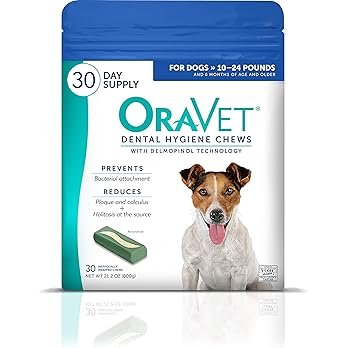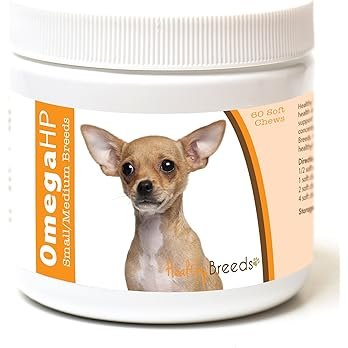
Chihuahua Health Issues
Chihuahuas are one of the smallest dog breeds. They have characteristics that set them apart in the dog world. Their small size, large eyes, and soft skull create unique health needs that every Chihuahua owner should be aware of. Their bodies are compact. This causes unique digestive and bone problems. For example, they may have breathing problems due to their small airways. This makes them more susceptible to conditions such as collapsed airways.
The Chihuahua’s metabolism also plays a crucial role in their overall health. Chihuahuas have a fast metabolism, causing quick weight changes based on their diet and activity level. With such a small body, even minor fluctuations in weight can significantly impact their health. Chihuahua owners should closely monitor their pet’s diet and adjust portions to match daily energy needs.
Additionally, certain health conditions commonly affect Chihuahuas. Common issues include dental problems, patellar luxation, and heart diseases such as congestive heart failure and heart murmurs. Regular veterinary check-ups are vital, as early detection can significantly improve the prognosis of many conditions. A balanced diet, good dental hygiene, and regular exercise can help reduce the risk of these common health problems.
Understanding their unique needs can help us keep our pets healthier and happier for longer.
Common Health Issues in Chihuahuas

Chihuahuas, although small in stature, are prone to a variety of health problems that can significantly impact their well-being. One prevalent issue is dental disease. Due to their tiny mouths, Chihuahuas often experience overcrowding of teeth, leading to plaque buildup and gum disease. Symptoms may include bad breath, difficulty eating, and swollen gums. Regular dental cleanings and daily brushing can help prevent these complications.


Another common health concern among Chihuahuas is patellar luxation, a condition where the kneecap dislocates from its normal position. This mobility issue can cause pain and lameness, making it challenging for the dog to walk or run. Early veterinary intervention for signs like limping or hopping can greatly improve a Chihuahua’s quality of life.
Heart problems also feature prominently in the health profiles of Chihuahuas. Conditions like patent ductus arteriosus (PDA) and congestive heart failure are particularly concerning. Do not overlook symptoms such as coughing, difficulty breathing, and lethargy. Regular vet check-ups can help detect heart problems early, leading to better health outcomes.
Lastly, obesity poses a significant risk for Chihuahuas, exacerbating other health issues and reducing their lifespan. Overfeeding, a sedentary lifestyle, and unhealthy treats can contribute to weight gain. Pet owners must monitor their Chihuahua’s diet and encourage regular exercise to prevent obesity-related health problems. Understanding these prevalent health issues and adhering to preventive measures can ultimately enhance the longevity and quality of life for these beloved companions.
Dental Health: A Major Concern
Known for their small stature and vibrant personalities, Chihuahuas are particularly prone to dental issues. This breed is prone to various dental diseases, which can lead to discomfort and even more severe health problems if left untreated. The primary dental concerns for Chihuahuas include periodontal disease, tooth decay, and gingivitis. These conditions are often the result of plaque accumulation and can cause inflammation, pain, and tooth loss over time.
One of the most alarming signs of poor dental health in Chihuahuas is bad breath, which may indicate the presence of plaque or tartar buildup. Other warning signs include swollen gums, difficulty eating, excessive drooling, or pawing at the mouth. If you notice any of these symptoms, see a vet immediately to prevent complications.

To keep Chihuahuas’ teeth healthy, take proactive measures. Regular tooth brushing is an effective way to reduce plaque buildup; it is advisable to use a toothbrush and toothpaste specifically designed for dogs. Furthermore, dental chews can play a significant role in maintaining oral health by helping to mechanically clean teeth as the dog chews. Choose high-quality, appropriately sized dental treats for your Chihuahua.
Additionally, routine veterinary check-ups are essential for monitoring dental health. During these visits, professionals can conduct thorough dental examinations and provide cleanings that are not feasible at home. Many veterinarians recommend dental cleanings at least once a year. Through these combined strategies—regular brushing, appropriate dental chews, and veterinary care—Chihuahuas can enjoy better dental health and overall well-being, making preventive care a vital aspect of their health management.
Preventing Obesity in Chihuahuas
Obesity is a significant health concern among Chihuahuas, and it can stem from various factors including overfeeding, lack of exercise, and genetic predisposition. Understanding the causes of weight gain is crucial to combating this issue effectively. Typically, Chihuahuas are more prone to obesity due to their small size; however, even a modest surplus in weight can negatively impact their health. Recognizing if your Chihuahua is overweight can be straightforward. A healthy Chihuahua should have a defined waist and their ribs should be easily felt without excessive pressure when touched. Weight gain can often be assessed by monitoring their body condition score, which takes into account factors such as fat distribution and overall physique.
The health risks associated with obesity in Chihuahuas are extensive. Overweight dogs are more likely to develop conditions such as diabetes, heart disease, and joint issues, leading to a decreased quality of life. Thus, preventive measures must be taken to maintain their weight within a healthy range. Implementing portion control is one of the most effective strategies for preventing obesity. Chihuahuas have modest caloric needs, and it is imperative to adhere to feeding guidelines provided by veterinarians or pet food manufacturers. Moreover, limiting treats and high-calorie snacks can substantially help in managing their weight.
Engaging your Chihuahua in regular exercise is also essential in the battle against obesity. Daily walks, playtime, and interactive games such as fetch not only promote weight loss but also stimulate their mental agility. Small breed dogs like Chihuahuas may not require extensive exercise routines, but consistent short bursts of physical activity suffice to keep them fit. Overall, with a balanced approach consisting of appropriate portion sizes and sufficient exercise, you can play an essential role in the ongoing fight against obesity in your Chihuahua, ensuring a healthier and happier life for them.
Heart Health: Keeping Your Chihuahua’s Tick Tocking

Maintaining optimal heart health is crucial for your Chihuahua, as small breeds are particularly susceptible to various cardiovascular issues. Among the most common concerns are heart murmurs and congenital heart disease, both of which can significantly impact your pet’s overall well-being and longevity. Heart murmurs, which are abnormal sounds heard during a heartbeat, can indicate underlying problems. While some murmurs may be harmless, others can signify serious conditions that require veterinary intervention.
Another serious heart-related issue is congenital heart disease, which refers to a range of heart defects present at birth. These defects can affect blood flow and lead to various complications. Recognizing the early signs of heart problems is essential for timely treatment. Common symptoms include coughing, difficulty breathing, intolerance to exercise, and lethargy. If you notice these changes in your Chihuahua, seeking veterinary care promptly is recommended to ensure an accurate diagnosis and appropriate care.
Regular check-ups with a veterinarian are paramount for monitoring your Chihuahua’s heart health. These examinations often include listening to your pet’s heartbeat, checking for murmurs, and conducting chest X-rays or echocardiograms when necessary. Such preventive measures can help identify heart conditions in their early stages, allowing for more effective management and treatment options.
Additionally, maintaining a balanced diet plays a vital role in promoting cardiovascular health for Chihuahuas. A diet rich in lean proteins, healthy fats, and essential nutrients can support a strong heart and overall health. Incorporating omega-3 fatty acids, found in fish oil, may help to reduce inflammation and promote healthy heart function. Regular exercise, tailored to your pet’s abilities and health status, also contributes to maintaining a healthy weight and reducing stress on the heart. Please visit our Food and Nutrition page for more information.
Supplements for a Healthier Chihuahua
Supplements can play a significant role in promoting the overall health and well-being of Chihuahuas. These small dogs often face a variety of health challenges, and the right supplements may help mitigate some of these issues. One of the most commonly recommended supplements for Chihuahuas is omega fatty acids. These essential fats are crucial for maintaining healthy skin and a lustrous coat. Omega-3 and omega-6 fatty acids can also have anti-inflammatory properties, which may assist in reducing skin allergies and promoting overall skin health.


Another important supplement for Chihuahuas is glucosamine. This compound is particularly beneficial for joint health, especially in older Chihuahuas or those that are prone to joint issues. Glucosamine works by promoting the repair of cartilage and improving joint lubrication, which can lead to enhanced mobility and a reduction in discomfort. When considering glucosamine supplementation, it is essential to select a product specifically designed for small breeds, as the dosage will differ based on size and weight.
When choosing supplements for your Chihuahua, it is crucial to consider the source and quality of the product. Look for reputable brands that provide information regarding their manufacturing processes and ingredient sourcing. Additionally, it is essential to consult a veterinarian before introducing new supplements into your dog’s diet. A veterinarian can provide guidance on appropriate dosages, potential interactions with existing medications, and specific health concerns that may need to be addressed.
Incorporating the right supplements into your Chihuahua’s diet can contribute to a healthier, more vibrant life. However, it is important to remember that supplements are designed to complement a balanced diet and should not replace proper nutrition. By taking a comprehensive approach to supplementation, you can help ensure your Chihuahua remains happy and healthy throughout its life.
The Role of Nutrition: What to Feed Your Chihuahua
Nutrition plays a pivotal role in the overall health and well-being of Chihuahuas. These small breed dogs have unique dietary requirements that differ from larger breeds. Selecting the right types of food is essential to ensure that Chihuahuas receive adequate nutrition to support their energy needs and maintain their health. High-quality dog food should be the foundation of their diet, with an emphasis on protein sources, healthy fats, and essential vitamins and minerals.
When choosing commercial dog food, pet owners should look for products that list meat as the first ingredient, thereby ensuring a protein-rich diet. It is crucial to opt for high-quality brands that comply with the standards set by pet food regulatory authorities. Nutrient-rich foods can contribute significantly to a Chihuahua’s vitality, coat health, and overall longevity. Additionally, some Chihuahuas may have specific dietary restrictions or allergies, which necessitate customizing their food choices to avoid adverse reactions.
Homemade meal options are also becoming increasingly popular among Chihuahua owners. Such meals can be tailored to meet the specific needs of the dog, provided nutritional balance is maintained. Ingredients like lean meats, vegetables, and grains can be incorporated into their meals. However, it is vital to consult with a veterinarian before transitioning to homemade diets. This ensures that the meals meet the dietary mandates required for optimal Chihuahua health and prevents nutrient deficiencies.
Lastly, regular consultations with a veterinarian regarding nutrition choices are invaluable. A vet can provide insights on portion sizes, frequency of feeding, and necessary adjustments based on your Chihuahua’s age, weight, and activity level. Understanding the critical role of nutrition and making informed dietary decisions can aid in the prevention of health concerns and promote a long and healthy life for your Chihuahua.
Regular Veterinary Check-ups: Why They Matter
Regular veterinary check-ups are essential for maintaining the health and well-being of your Chihuahua. This breed is known for its unique health considerations, making preventative care particularly crucial. By scheduling routine visits, you ensure that your pet receives timely vaccinations and wellness exams, which are vital for early detection of potential health issues. Vaccinations protect against serious diseases, while wellness exams allow veterinarians to evaluate your dog’s overall condition and identify any emerging concerns.
During a check-up, the veterinarian will typically assess your Chihuahua’s weight, dental health, and mobility, alongside conducting routine screenings for common diseases. These appointments often include discussions regarding diet and lifestyle, which can significantly impact your dog’s health as they age. With small breeds, like Chihuahuas, early intervention can lead to better outcomes for conditions such as dental disease, heart issues, and obesity, all of which they are predisposed to.
The frequency of these check-ups greatly depends on your Chihuahua’s age and overall health. Generally, puppies should see a veterinarian every 3 to 4 weeks until they reach 16 weeks of age. Adult dogs ought to have a veterinary visit at least once a year, while senior dogs may need to be seen more frequently. If any signs of illness or behavioral changes are observed, it is advisable to schedule an appointment promptly, regardless of the last visit date.
Finding a veterinarian who is experienced with Chihuahuas can enhance the quality of care your pet receives. You may seek recommendations from fellow Chihuahua owners or consult local veterinary directories. Whichever the means, ensure the practice understands the specific health concerns related to Chihuahuas and provides a comfortable environment for your pet.
Creating a Health Care Plan for Your Chihuahua
Developing a comprehensive health care plan for your Chihuahua is essential to ensure your pet’s well-being and longevity. A proactive approach to health care not only addresses common health concerns but also enhances quality of life. The first step is to understand the specific health risks associated with the breed, including dental issues, obesity, and heart disease. Regular veterinary check-ups are crucial, and for Chihuahuas, a frequency of every six months is often recommended. These visits allow for early detection of potential health problems and provide a platform for vaccinations and routine screenings.
Preventative measures play a significant role in the overall health of your Chihuahua. Establishing a balanced diet tailored to their needs can help prevent obesity, a common issue in the breed. Incorporating exercise into their daily routine will also foster physical health, improving both their mental and emotional well-being. Regular dental care, including brushing your Chihuahua’s teeth, is vital in preventing periodontal disease, which is particularly common amongst small breeds. Utilizing chew toys designed to promote dental health can support this routine.
It is also essential to have an emergency care strategy in place. Know your local vet emergency services and keep a pet-specific first aid kit ready. Knowing the signs of distress or illness in Chihuahuas can enable you to act quickly during an emergency. Creating a pet owner support network can be invaluable. Numerous online forums and local groups offer resources, advice, and shared experiences. These platforms not only help you stay informed about Chihuahua health concerns but also provide emotional support from fellow dog lovers.
By actively engaging in your Chihuahua’s health care plan, you empower yourself to make informed decisions that contribute to a long and healthy life for your beloved pet.
I’m thrilled to show you my favorite pet gadgets! FYI: I use Amazon affiliate links here. But I only share stuff I adore. And if you buy through my links, it supports the site without extra cost to you.



